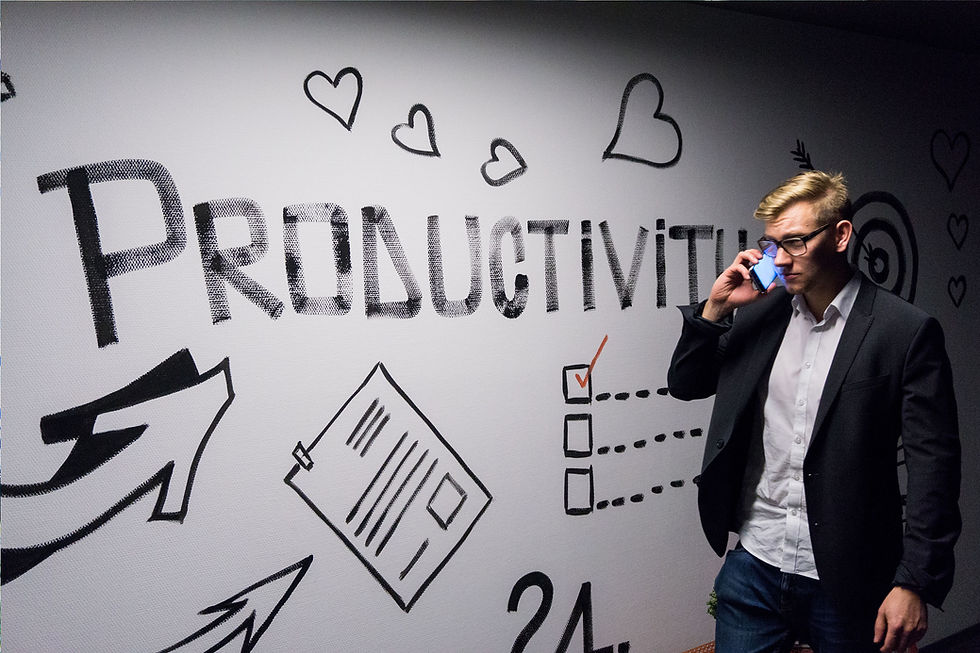Control or Connection? Unraveling the Hidden Patterns That Sabotage Relationships
- Jay Glaspy

- Apr 4, 2025
- 3 min read
Updated: Dec 4, 2025

When we choose control over honesty, we disconnect from the people—and parts of ourselves—that matter most. True leadership and intimacy begin where control ends.
In high-pressure roles—military, law enforcement, executive leadership—control isn’t just a habit. It’s a way of staying alive. It’s what kept your team safe, what helped you predict outcomes, and what allowed you to function when emotions ran hot. Control becomes comforting. It feels smart. It feels strong. And—most deceptively—it feels right.
As Susan Campbell writes in Getting Real, “People try to control others because they believe they know what’s best—not only for themselves but for others too.” Control gives the illusion of safety and correctness. We control because it helps us avoid uncertainty. We manage others’ reactions because it helps us feel stable. We withhold our truth because it helps us avoid rejection.
But in our effort to stay safe—we lose touch with what’s real. And over time, we trade connection for control without even realizing it.
Control Isn’t Always Loud. Sometimes, It’s Subtle.
Control doesn’t just show up as dominance or aggression. More often, it’s quiet:
Withholding your true feelings to “keep the peace”
Offering advice instead of curiosity
Avoiding hard conversations and calling it “not the right time”
Presenting a polished image while suppressing inner turmoil
Campbell calls these control patterns—ways we unconsciously shape others’ behavior to keep our own emotional world comfortable. We might say we’re being helpful or logical. But underneath, there’s usually a discomfort we haven’t faced.
The Real Cost of Control Patterns in Relationships
Control keeps things smooth on the surface—but distant underneath.
You avoid conflict, but intimacy never deepens.
You appear strong, but feel emotionally alone.
You lead well professionally, but struggle to let anyone truly see you.
Eventually, even success starts to feel hollow. Not because you’re doing anything wrong—but because you’ve stopped being real.

Honesty Is Risky—but It’s the Door to Real Connection
Getting real means giving up the illusion that you know what’s best for everyone else. It means saying what’s true for you—even if it’s messy, incomplete, or vulnerable.
Susan Campbell writes, “Authentic relating requires that we stop trying to manage how others perceive us and start trusting that the truth itself is enough.”
This isn’t about oversharing or emotional chaos. It’s about owning your experience. Saying, “I’m scared.” Or “I don’t know.” Or “I feel disconnected, and I want to understand why.” That level of honesty creates the kind of trust control never can.
How to Begin Letting Go of Control Patterns
You don’t need to change overnight. Start with noticing. Gently. Without judgment.
✔ Pause Before You React
Ask yourself: Am I trying to control this person or moment because I feel unsafe?
✔ Practice Saying What’s True
Instead of offering advice, try naming your own experience.“I feel nervous about bringing this up, but it matters to me.”
✔ Let Others Have Their Experience
You don’t need to fix, manage, or rescue. Holding space can be more powerful than solving.
✔ Get Curious About Discomfort
When you feel the urge to withdraw, please, or manage—slow down. Breathe. What feeling are you trying to avoid?

Final Thoughts: You’re Not Failing—You’re Unlearning
If you’re noticing control patterns in your relationships, it doesn’t mean you’re broken. It means you’re waking up. You adapted to environments that rewarded control. That’s how you survived. But real connection—at home, at work, with yourself—asks something different. It asks for honesty. For presence. For the courage to get real.
And when you do, you’ll discover a quiet strength that’s deeper than control. A grounded confidence that isn’t about being right, but being real.
Call to Action
If you’re ready to lead and relate from a place beyond control—and build relationships rooted in clarity, honesty, and presence—I’m here to walk with you. Through quiet, grounded coaching, I will help you unlearn the patterns that once kept you safe and step into a more authentic way of being.
About Jay
I’m Jay Glaspy, a transformational life and leadership coach based in the Haymarket–Gainesville area and serving clients nationwide. As a U.S. Army Special Forces veteran, I bring a grounded, experience-driven approach to helping high performers realign their lives from the inside out. I coach executives, veterans, athletes, and driven professionals in embodied leadership, lifestyle design, and identity alignment so they can build a life they don’t need to escape from. My work blends practical systems with mindful, presence-based leadership. After navigating my own seasons of challenge, recovery, and reinvention, I now help others create clarity, stability, and a way of living that feels honest and sustainable.
Let's connect: jay@commandperformancecoaching.com
Schedule a FREE CONSULTATION HERE




Comments